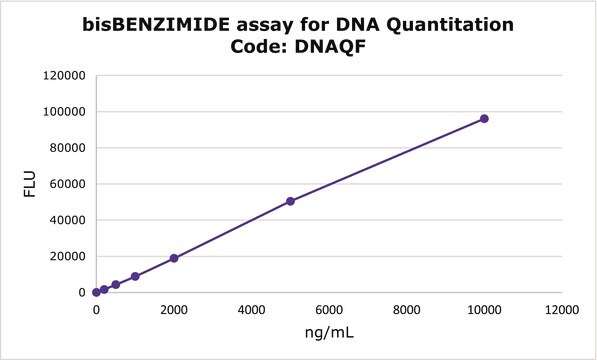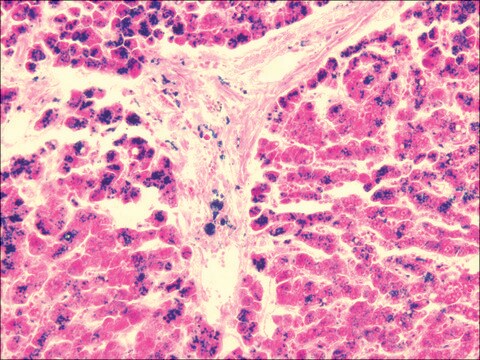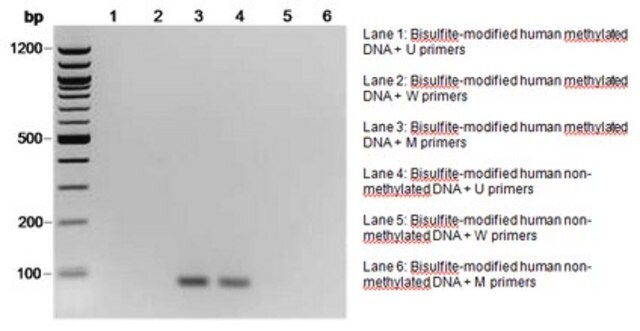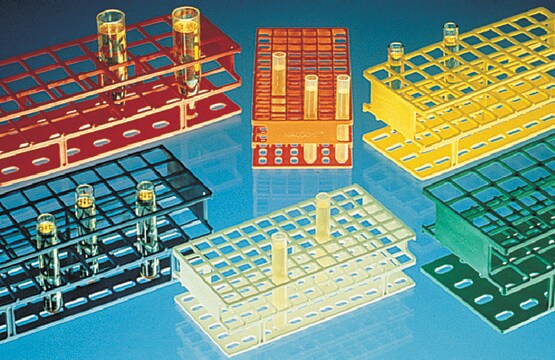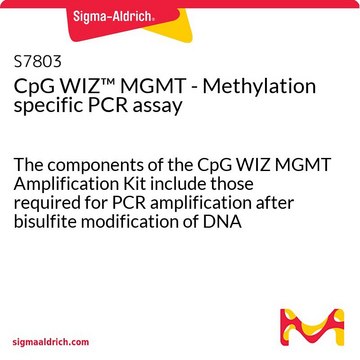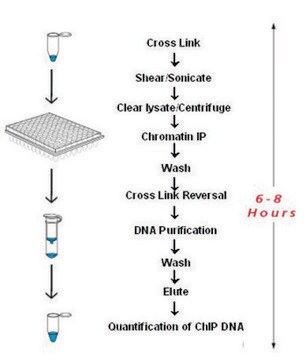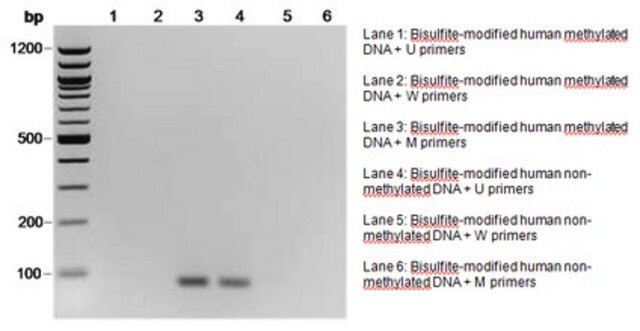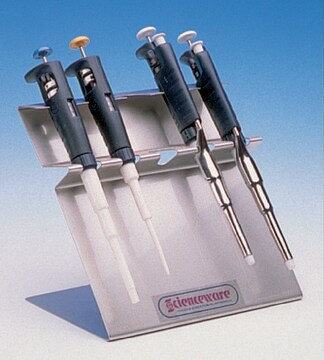MDQ1
Imprint® Methylated DNA Quantification Kit
To measure global DNA methylation shifts from as low as 10 ng DNA
Synonym(s):
DNA Methylation Quantification, DNA methylation shift
About This Item
Recommended Products
General description
Application
Features and Benefits
- ELISA based format
- Procedure completes in 4 easy to follow steps
- All reagents supplied including control methylated DNA
- Detection limit is 5 ng of fully methylated DNA
- Input DNA may be as low as 10-200 ng
- Procedure completes in 3.5 hours
- 96 well format allows option of studying single samples or high-throughput studies
- Optimized antibody and reagents with high specificity to 5-mC; no cross-reactivity to unmethylated cytosine
- May be used with adherent and suspension cells, tissues, plasma and other body fluids such as saliva, urine and serum
Legal Information
Kit Components Also Available Separately
- M8570Methylated Control DNA, 50 ng/μLSDS
related product
Signal Word
Warning
Hazard Statements
Precautionary Statements
Hazard Classifications
Aquatic Chronic 3 - Met. Corr. 1 - Skin Sens. 1
Storage Class Code
8A - Combustible corrosive hazardous materials
Certificates of Analysis (COA)
Search for Certificates of Analysis (COA) by entering the products Lot/Batch Number. Lot and Batch Numbers can be found on a product’s label following the words ‘Lot’ or ‘Batch’.
Already Own This Product?
Find documentation for the products that you have recently purchased in the Document Library.
Customers Also Viewed
Articles
The overall degree of methylation of a genome can be a useful measure of global regulatory changes. Measurement of this parameter is usually performed after complete digestion to the single base and then analyzed using HPLC or mass spectrophotometry. The Global DNA Modification Kit (MDQ1), allows the researcher to monitor DNA methylation using a format similar to a sandwich ELISA assay.
Protocols
The Imprint® Methylated DNA Quantification Kit provides a high-throughput, non-radioactive means of measuring global DNA methylation shifts.
Chromatin Immunoprecipitation qPCR for studying gene regulation across conditions.
Chromatin Immunoprecipitation qPCR for studying gene regulation across conditions.
Chromatin Immunoprecipitation qPCR for studying gene regulation across conditions.
Our team of scientists has experience in all areas of research including Life Science, Material Science, Chemical Synthesis, Chromatography, Analytical and many others.
Contact Technical Service
